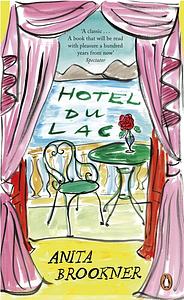Take a photo of a barcode or cover
emotional
reflective
slow-paced
Plot or Character Driven:
Character
Strong character development:
No
Loveable characters:
No
Diverse cast of characters:
No
Flaws of characters a main focus:
Yes
emotional
reflective
medium-paced
Plot or Character Driven:
Character
Strong character development:
Yes
Loveable characters:
Yes
Diverse cast of characters:
No
Flaws of characters a main focus:
Yes
funny
reflective
sad
medium-paced
Plot or Character Driven:
Character
This book is pretty well written, but it was super boring and I struggled to get through it.
challenging
dark
mysterious
reflective
sad
medium-paced
Plot or Character Driven:
A mix
Strong character development:
Complicated
Loveable characters:
No
Diverse cast of characters:
Yes
Flaws of characters a main focus:
Complicated
reflective
relaxing
slow-paced
Plot or Character Driven:
Character
Strong character development:
No
Loveable characters:
No
Diverse cast of characters:
Yes
Flaws of characters a main focus:
Complicated
reflective
slow-paced
Plot or Character Driven:
Character
Strong character development:
Complicated
Loveable characters:
Complicated
Flaws of characters a main focus:
Yes
I've read this book three times now, and each time I fall in love with the prose. It's so beautiful to read that I don't mind the emotional distance from the main character, who contains multitudes enough but who feels strangely likeable, and the fact that the perspective sometimes wanders away from her entirely. A quiet book that I enjoyed reading and will probably read again.
Edith Hope is a woman of a “certain age,” who has been shipped off to the quiet, secluded Hotel du Lac to wait for some sort of scandal, in which she played a central role, to die down. She is morose, and rather lost – without any real purpose, except to wait for the hubbub to blow over. Despite her name, Edith really has no hope; she is bored and boring. She wants to be left alone, but she’s lonely. The other guests are similarly hiding or waiting for something to happen, and so the days pass. Most ironic, this grey little mouse of a woman writes romance novels for a living, but is unable to identify any real love in her own life.
One of my favorite passages comes when Edith is speaking with her editor (or publisher). She says that her readers love the fable of the tortoise and the hare, where the steady, practical tortoise wins every time. However, in truth, says Edith, it is the hare who wins; but the hares of this world are too busy with the spoils of their conquests to bother reading, so the books are aimed at the tortoise market.
I had to remind myself that the book was published in 1984, but even then, I doubted that the great scandal from which Edith is hiding was all that bad. Back in the mid 1980s, I had a friend who did the same thing (though not quite so late in the game), and there were no lasting repercussions. Maybe it’s the difference between Americans and British.
I thought some of the portrayals of the other guests, seen through Edith’s eyes, were spot on, but the shortness of the work really didn’t leave room for further exploration, and on the whole I felt the book suffered because of that. So while I enjoyed it, I wouldn’t recommend that you put it at the top of your reading list.
One of my favorite passages comes when Edith is speaking with her editor (or publisher). She says that her readers love the fable of the tortoise and the hare, where the steady, practical tortoise wins every time. However, in truth, says Edith, it is the hare who wins; but the hares of this world are too busy with the spoils of their conquests to bother reading, so the books are aimed at the tortoise market.
I had to remind myself that the book was published in 1984, but even then, I doubted that the great scandal from which Edith is hiding was all that bad. Back in the mid 1980s, I had a friend who did the same thing (though not quite so late in the game), and there were no lasting repercussions. Maybe it’s the difference between Americans and British.
I thought some of the portrayals of the other guests, seen through Edith’s eyes, were spot on, but the shortness of the work really didn’t leave room for further exploration, and on the whole I felt the book suffered because of that. So while I enjoyed it, I wouldn’t recommend that you put it at the top of your reading list.
The company of their own sex, reflected Edith, was what drove many women into marriage.
It is a great mistake to confuse happiness with one particular situation, one particular person.
People feel at home with low moral standards. It is scruples that put them off.
Good women always think it is their fault when someone else is being offensive. Bad women never take the blame for anything.
It is a great mistake to confuse happiness with one particular situation, one particular person.
People feel at home with low moral standards. It is scruples that put them off.
Good women always think it is their fault when someone else is being offensive. Bad women never take the blame for anything.
challenging
emotional
reflective
sad
slow-paced
Plot or Character Driven:
Character
Strong character development:
Complicated
Loveable characters:
Complicated
Diverse cast of characters:
No
Flaws of characters a main focus:
Yes



